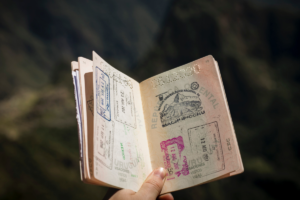The library remains one of the last places in the world where there is no expectation for you to spend any money. One of the things I love about France is that library culture is alive and well and very accessible. Libraries are spread across the country, usually easy to find and join. This blog will cover the particularities of libraries in France.
Public Libraries:
Most of the 16.000 public libraries in France are the responsibility of local and regional authorities (la ministère de la culture). Most of the things you want to see/know/do can be accessed online. You can find your closest one by going to the relevant website:
- Paris: https://bibliotheques.paris.fr/
- Marseille: https://www.bmvr.marseille.fr/
- Toulouse: https://www.bibliotheque.toulouse.fr/
- Lyon: https://www.bm-lyon.fr/
- Nice: https://bmvr.nice.fr/
- Other: search for “bibliothèque” + your city name
How to register:
Now that the first step is done, you should register as a member, you can sometimes do this online (have a look on the library’s website). You can also go in person and register with one of the members of staff. They will ask you for a photo, one identity document (identity card, passport, driving licence, residence permit or family record book for children) and proof of your address. Normally the process is very quick so you can get your card directly after you register, this is free and valid for the following 12 months. You need to remember to renew your card after it expires every year, by going back and speaking to a member of staff. This usually takes less than 5 minutes.
What to borrow:
You can now borrow books. Each library has their own rules on how many at a time. Other than books some also offer digital products, sheet music, CDs, films, access to computers, televisions and musical instruments. Note that most libraries have a foreign language section, meaning you can find books written in English, German, Spanish, Italian and more!
The Event Calendar:
Each library will have a calendar (in the building or online) where you can review the program for the month. The offering is plentiful – from film showings to history classes, help with writing a CV, language courses, drawing classes, interviews with authors, board games… Most people will find something that they are interested in. The offering is usually free of charge, and you will see in the program if you have to register or not.
You like your library quiet?
Libraries are also frequently used by students to study and prepare for their exams. You will notice when more and more young people take up the free spaces around the table. They tend to go to the libraries that are open the latest. If you prefer your library calmer, you can choose one that closes in the late afternoon.
Notable Libraries:
- Bibliothèque Mazarine in Paris: the oldest public library in France, dating back to the 17th century. They have an original Gutenberg Bible.
- La Tête Carrée in Lyon: It’s the architecture of the library that secured a spot on this list, we invite you to have a quick online.
- Bibliothèque Nationale et Universitaire in Strasbourg: The library was stands since 1891 and has the second-largest collection in France. Despite being bombarded many times during the war it still stands strong.
- La bibliothèque Oscar Niemeyer in Havre: more fantastic architecture, designed by Brazilian architect of the same name.
Do you want to add anything? Which is your favourite library, and why? Mine is in Paris, Médiathèque Françoise Sagan. The building gives the impression to be in the South of France with the palm trees. There is plenty of space to sit in- and outside and they have a great collection. Even books in languages I can read, and a piano on the top floor to play!


